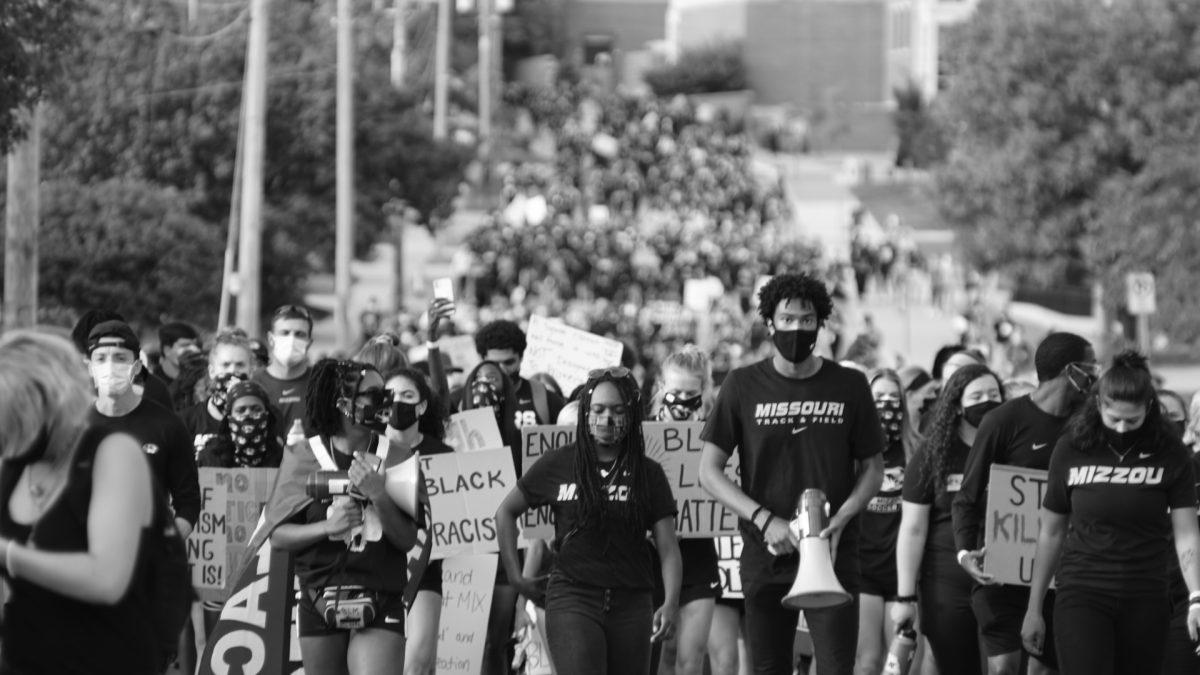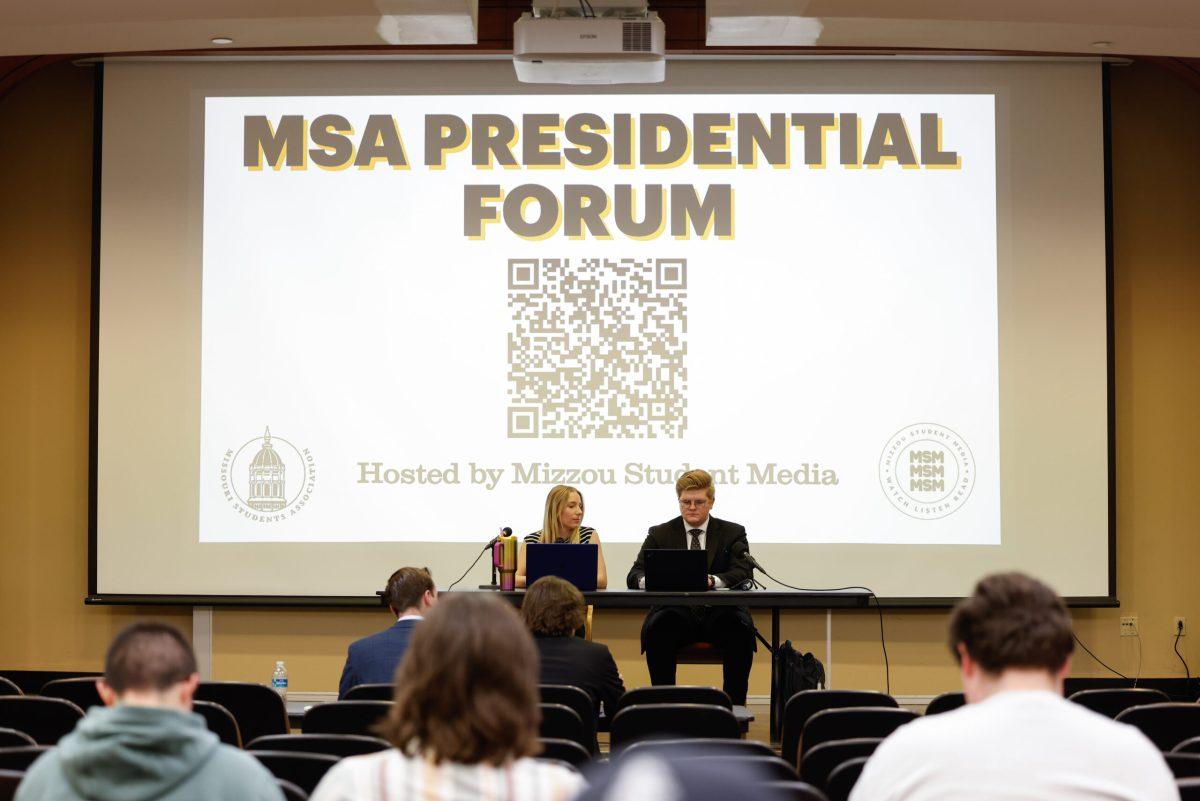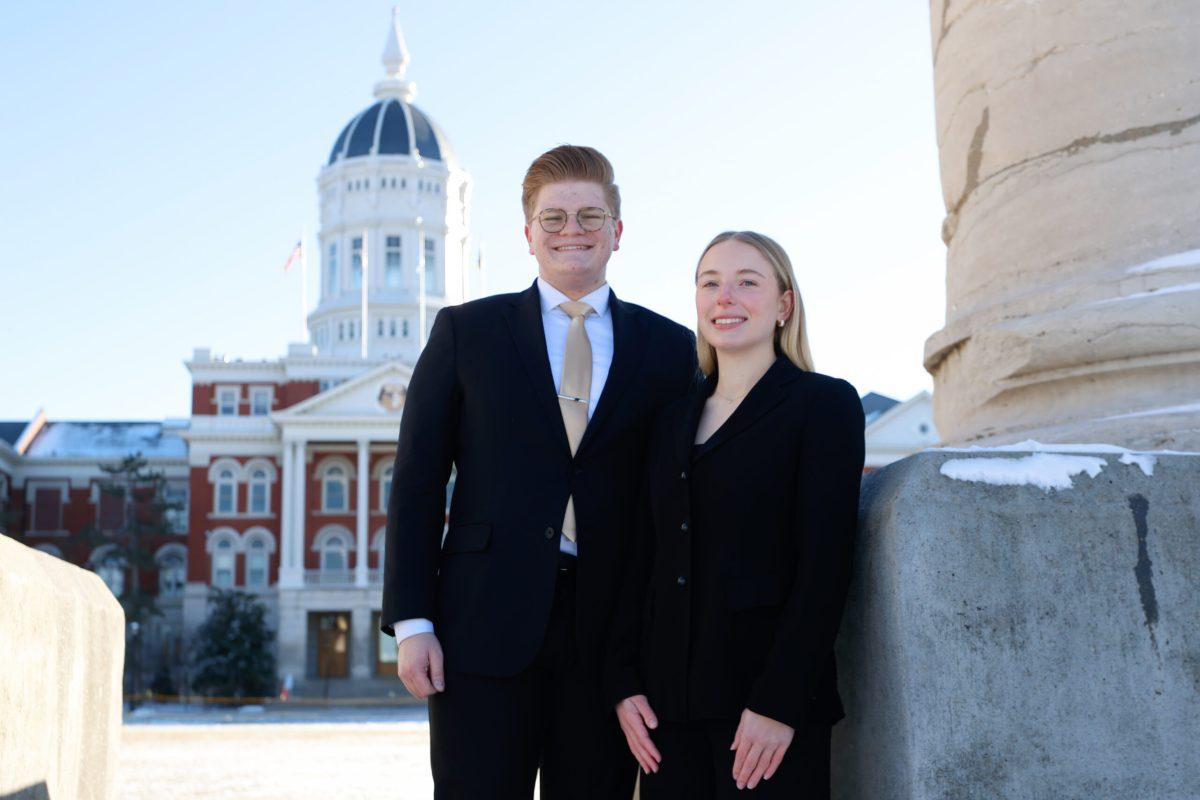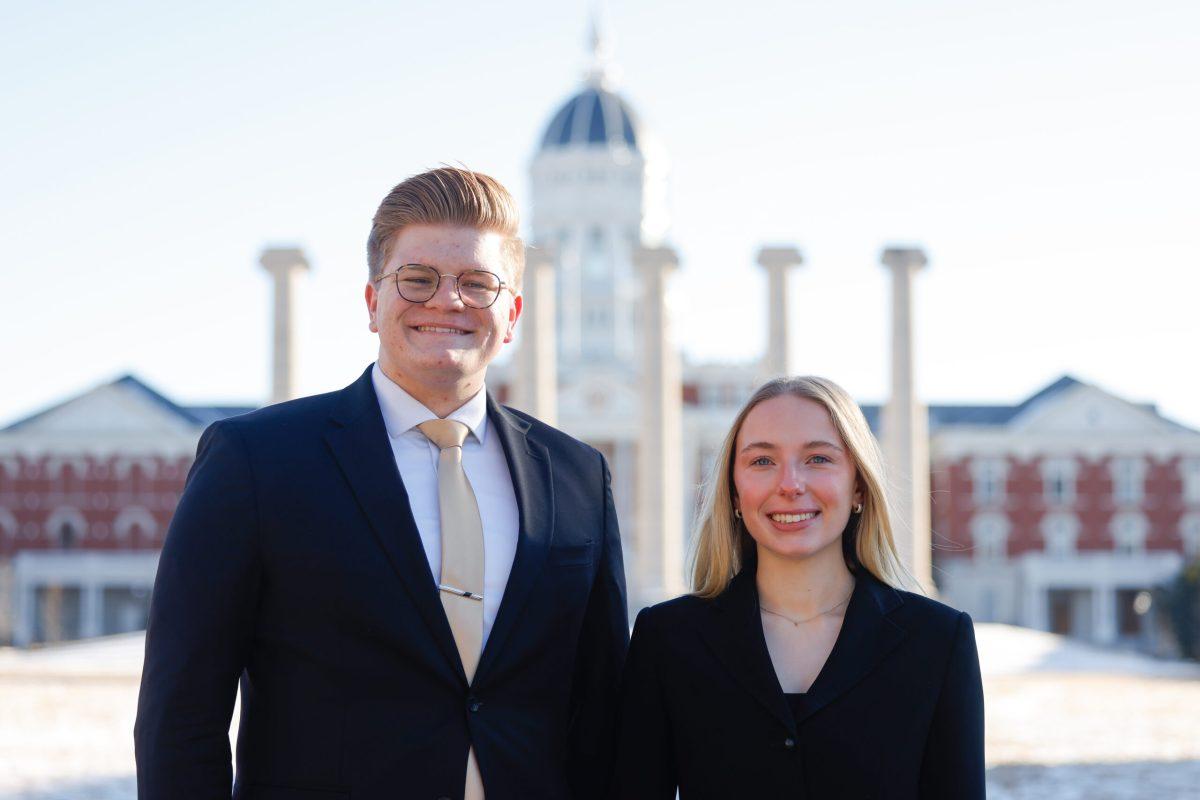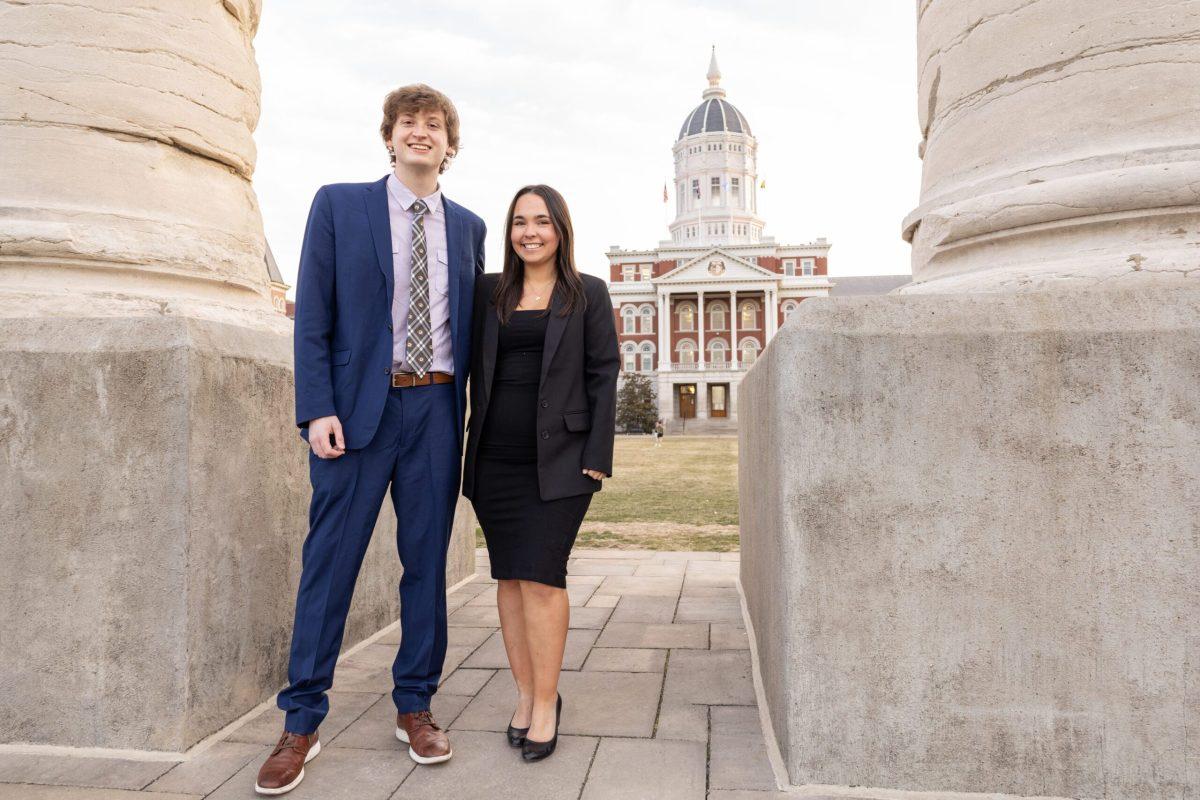On Wednesday evening at 6 p.m., hundreds of MU students gathered at the Columns to march with the Mizzou Black Student Athlete Association (BSAA).
The organization hosted the march with the goal to “promote unity against injustices which continue in our nation” and said they are “grateful for the support” their coaches give them, according to a statement released on their Twitter prior to the march.
“This country has to do better,” BSAA Secretary and Treasurer Atina Kamasi said. “These individuals of this community have to ensure their Black friends and peers are welcome, heard, safe and included.”
BSAA President Cason Suggs said that he spoke with athletes at MU and other schools, and he determined there was a need for a program like the Black Student Athlete Association.
Other students who attended the march had similar sentiments.
“For example, I know that Mizzou Athletics sent out a really tone-deaf tweet last November or October, and it just did not go over well whatsoever, and it was about Black athletes,” MU sophomore Ericka Loida said. “I think that they could have done a lot better in addressing that and responding to backlash.”
The tweet in question featured images of both Black and white athletes with various slogans. The white athletes were represented as having prestigious career goals such as a doctor and corporate financer, while the Black athletes’ pictures had captions stating “I am an African American woman,” and “I value equality.” Arielle Mack, the BSAA social media/community outreach chair, was one of the athletes featured.
Loida believes racial injustice is extremely prevalent in the United States right now, and said she wants to show other Black students that she and the MU community are behind them.
Deputy Athletics Director of Communications Nick Joos said the athletic department is “very supportive” of BSAA efforts and that the group did an “outstanding job” putting together and following through with the march.
Since the tweet was criticized, the Athletics Department has sponsored groups such as the Mizzou Athletic Committee on Inclusive Excellence (MACIE) and Student Athletes Fostering Equality (SAFE) to help better its understanding of diversity on campus. It has also participated in “ongoing dialogue” with athletes and staff through events such as town hall meetings and online equity resources.
“Columbia is doing a bunch of Zoom meetings with smaller groups to talk about ways that the community should get better in the area of policing and things like that,” Joos said. “We’ve had some of our staff… meet with the city and with our student athletes to share some of their stories relative to those types of interactions.”
He also said the athletic department plans on providing “some training” for a small group of staff members on MACIE who would then train other coaches and athletic faculty, but did not clarify what that training would involve. He said the department wants to create “greater awareness” and open employment opportunities, and that they are excited to host in-person events once COVID-19 concerns have passed.
Other students felt like the march was a safe place for them to participate in the Black Lives Matter movement away from fears of violence sparked at community-wide or big-city events.
MU freshman Emma Reiser said her parents did not allow her to attend marches in her hometown of Kansas City, Mo., but that she has always wanted to be able to participate in events that support racial justice.
“Mizzou hasn’t … been open enough about their stance and hasn’t done enough to be inclusive,” Reiser said. “As a generation we have a voice, and to use it in the ways that we can is really important.”
She said she thinks the school should openly support Black Lives Matter, and that they need to better uplift the minority voices that are “so prevalent” in the MU community.
“I think if any time is the time to speak your mind, it’s the march,” MU freshman Allison Burns said. “I feel safe about that.”
She said that aside from taking the opportunity to meet like-minded people, she attended the BSAA march to raise awareness.
“It’s not a passing movement. It’s still going on, and it’s going to be going on until there’s a solution,” Burns said.
Burns’ friend, MU freshman Jackie Wildt, said she has always wanted to be a part of marches that support Black Lives Matter, and that this march is no different.
“After I went to one this summer, I thought that lots of people should go because you don’t realize everyone’s story,” Wildt said. “I got to hear lots of stories at that one that I went to, and it was super eye-opening.”
She said she finds it extremely important to support Black people right now.
“I think it’s important for everybody to be able to see the different sides and for everybody to be aware of what’s going on right now and not just turn the other direction,” Wildt said. “Everyone needs to be actively listening.”
BSAA Secretary and Treasurer Kamasi said the organization plans on continuing the conversation about racial injustice throughout the school year.
BSAA Vice President Keiarra Slack said they plan on working with other groups on campus.
“How can we bridge the gap between us as athletes and us as students? How can we network better? How can we get more in tune with the Black Culture Center?” Slack said. “Our job is really just to represent … the BSAA, but also… we’re more than that, so how can we be more than that on campus?”
_Edited by Joy Mazur | [email protected]_


